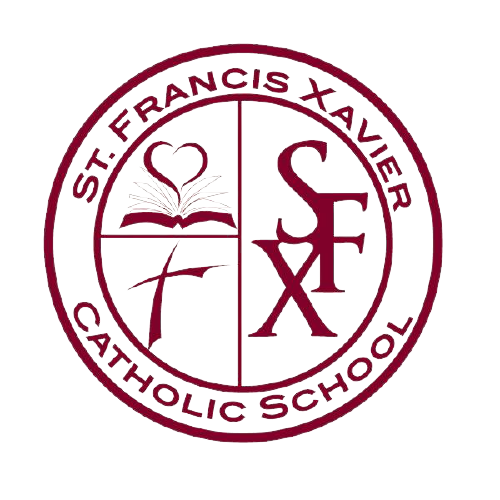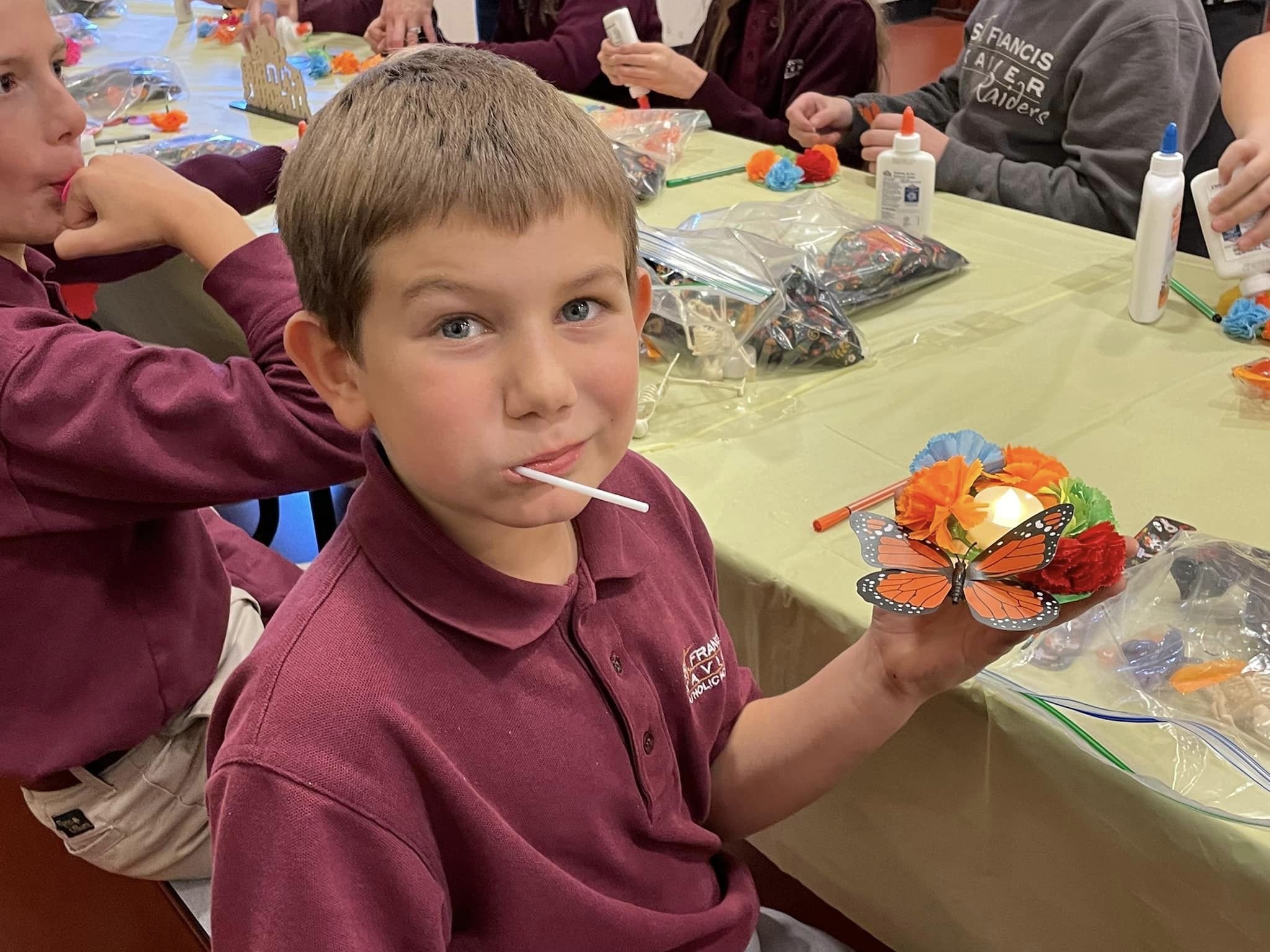Elementary School at St. Francis Xavier
Kindergarten - Grade 4
“A good school provides a rounded education for the whole person.
And a good Catholic school, over and above this, should help all its students to become saints.”
— Pope Emeritus Benedict XVI
Elementary School Diocesan Curriculum Standards
In addition to the specific content taught in St. Francis Xavier’s elementary school classes, the curriculum from the Diocese of Harrisburg gives a more extended look at what is covered in the classroom.
“Elementary School Curriculum Arc
”
“In Kindergarten, students develop the skills necessary to become readers and writers, as well as learn the key fundamental skills of math. Children are encouraged to become more independent, to be kind friends, and to be good citizens. Students include God in each day during prayer and through action. The goal of each Kindergarten class is to promote the life of Jesus and encourage children to live life each day the way that Jesus did, so they may leave Kindergarten with the basic knowledge necessary to be examples for their peers.”
“Students in Grade 1 continue to learn and memorize Catholic prayers, and study the Bible, the Holy Trinity, and the liturgical calendar. Grade 1 students develop various math skills including addition and subtraction through the number 20, order and sequencing numbers, number patterns, practicing measurement, graphing, symmetry, solid and plane figures, and problem solving. Students study plants, animals, earth science, sound and light waves in science class, and famous symbols and figures in American history, holiday celebrations, and map skills in social studies class, with a central focus on families. Grade 1 students develop skills for reading, writing, speaking and listening in language arts by practicing grammar, phonics, expanding vocabulary through spelling, reading, and writing sentences.”
“Students in Grade 2 fervently prepare for first reconciliation and first Holy Communion. Students receive catechesis about the nature, grace, and beauty of both sacraments. Grade 2 students continue to deepen and develop math skills by practicing two and three-digit adding and subtracting, telling time, and county money. In science class, students study the states of matter, landforms, bodies of water, and how and why the earth is changing constantly. Students sharpen map and globe skills, learn about family traditions, American holidays, and develop an understanding of goods, services, and wants vs. needs in social studies class. Grade 2 students expand reading comprehension and fluency, truly develop a love for reading, and continue to practice grammar and vocabulary.”
“Grade 3 is a phenomenal year for development. Students enter into middle childhood and experience a variety of new opportunities and stresses. To meet the demands of the developing student, courses are taught in conjunction with the classroom environment that is established. This environment is as important (if not more than) the specific topics of instruction. In grade 3, students learn about respect for self and others, construct rules that will ensure a safe and open space, identify and express emotions appropriately, use responsibility to take care of the classroom, work together with classmates by listening and sharing, and treat each other with love as Jesus did.
In religion class in grade 3, students discover various Catholic prayer practices, including lectio divina and the Rosary. Students learn about virtues and put them into action, and about the Body of Christ. They continue to grow in friendship with Jesus and study the saints. Math class consists of consistent practice of fundamentals and number sense (Simple Solutions), as well as learning new operations of multiplication and division. In science class, students explore the life and earth sciences, and have an enhanced focus on research and presentation skills, as well has hands-on science experiments. In social studies class, students discuss current events, history, geography, and different communities. Students in grade 3 develop writing traits, specifically organization, sentence fluency, grammar and writing mechanics. They are continually encouraged and motivated to read for pleasure and purpose, while practicing their reading skills, comprehension, and discovering literary elements.”
“In Grade 4, students develop core skills and virtues like leadership and kindness. Collaborative conversations that encourage student leadership, personal responsibility for their own education, practicing manners and showing grace are at the forefront of lessons with students. Students are introduced to notetaking and study skills, so they are prepared for success in the classroom and in real world scenarios. Reading and writing in grade 4 are sources of creative expression. Students use the books that interest them to develop a love for reading while building their understanding of the reading elements. They show comprehension of their reading by using a reading journal and daily practicing fluency through short reading passages. Students continue to develop writing skills and are introduced to writing “voice”. Through the study of vocabulary and language, students begin writing unique pieces, practice spelling skills using the 31 spelling rules when spelling new words, and practice grammar. In math class, grade 4 students build upon the skills they’ve mastered in previous grades, and continue to master those skills. Money management is a critical skill grade 4 students practice throughout the year. Social studies curriculum is heavily focused on the state of Pennsylvania. Students begin by using maps and atlases to discover continents, oceans, and the location of the United States. Students then study regions of the US and narrow down their study to Pennsylvania’s counties and Gettysburg, and eventually their own home address. Students dive into the history of Pennsylvania and have the opportunity to reflect on the progress made in the history of Pennsylvania and the changes that can be made. Science curriculum centers on appreciation and stewardship of God’s beautiful creation through a focus on biology, and an introduction to astronomy, physics, and geology. Throughout grade 4, students begin to understand the most important lessons learned in life are typically not found in a book.”







